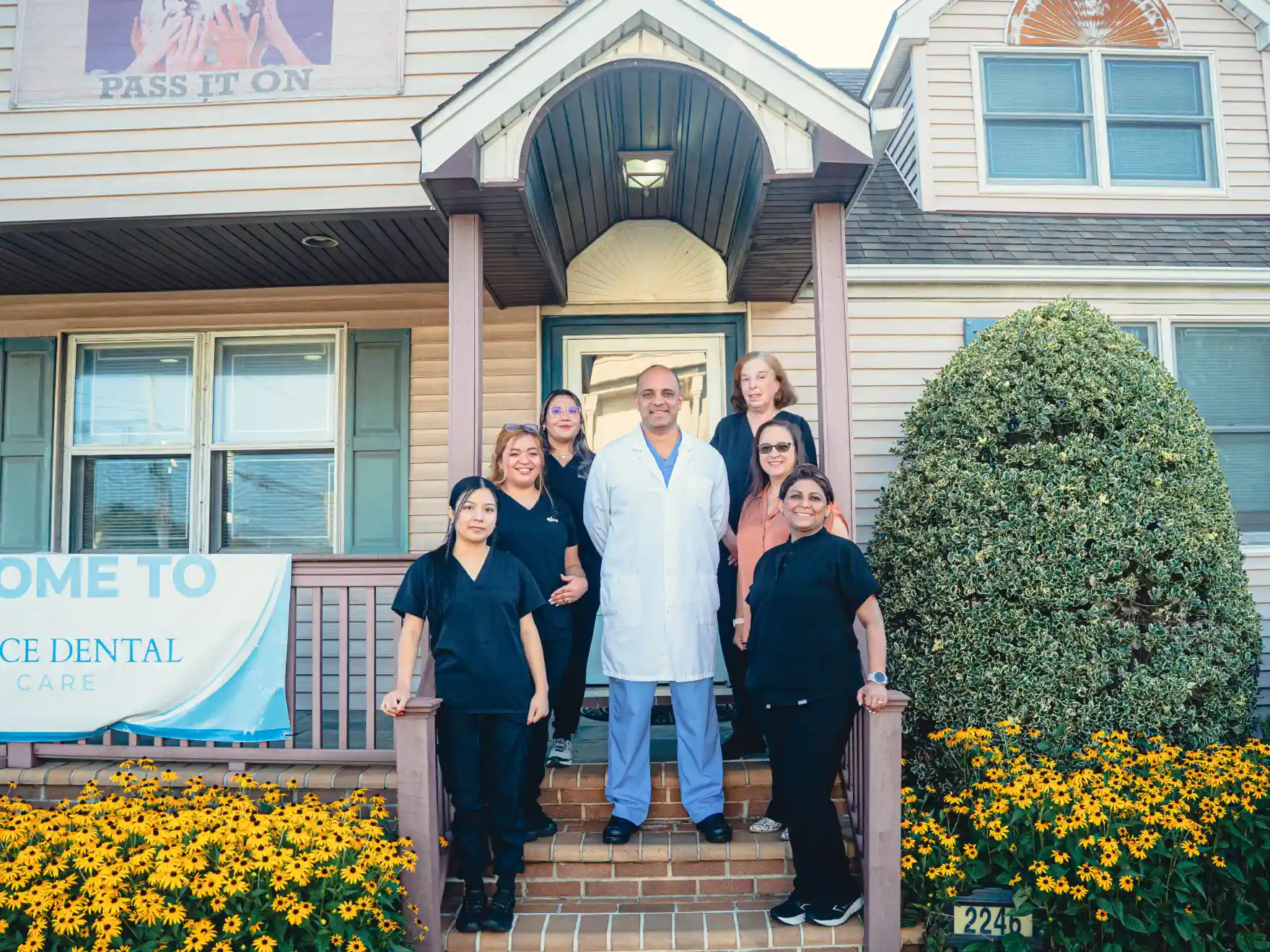Don't Let Pain Control Your Smile
With an additional 2 years post-doctoral education, Dr. Cherian is Dental Sedation Certified, furthering our commitment to providing expert relief in a calm, relaxing environment. Book your emergency exam now for just $75 and experience relief from dental pain, anxiety, and financial worries.
Get your dream smile today
Emergency Exam

Recognizing Dental Emergencies
A dental emergency can occur at any moment, often without warning. Understanding what constitutes a dental emergency is key to getting the right care promptly. Here are common scenarios that require emergency dental care:
- Severe Toothache: Indicative of possible infection or decay that might require immediate attention.
- Chipped or Broken Teeth: Accidents or biting on hard objects can lead to this emergency.
- Knocked-Out Tooth: Requires prompt action to increase the chances of saving the tooth.
- Lost Filling or Crown: Leaving the underlying tooth exposed and vulnerable.
- Dental Abscess: A serious infection that can be life-threatening if not treated immediately.
- Bleeding Gums: Can signal advanced gum disease or other serious dental issues.
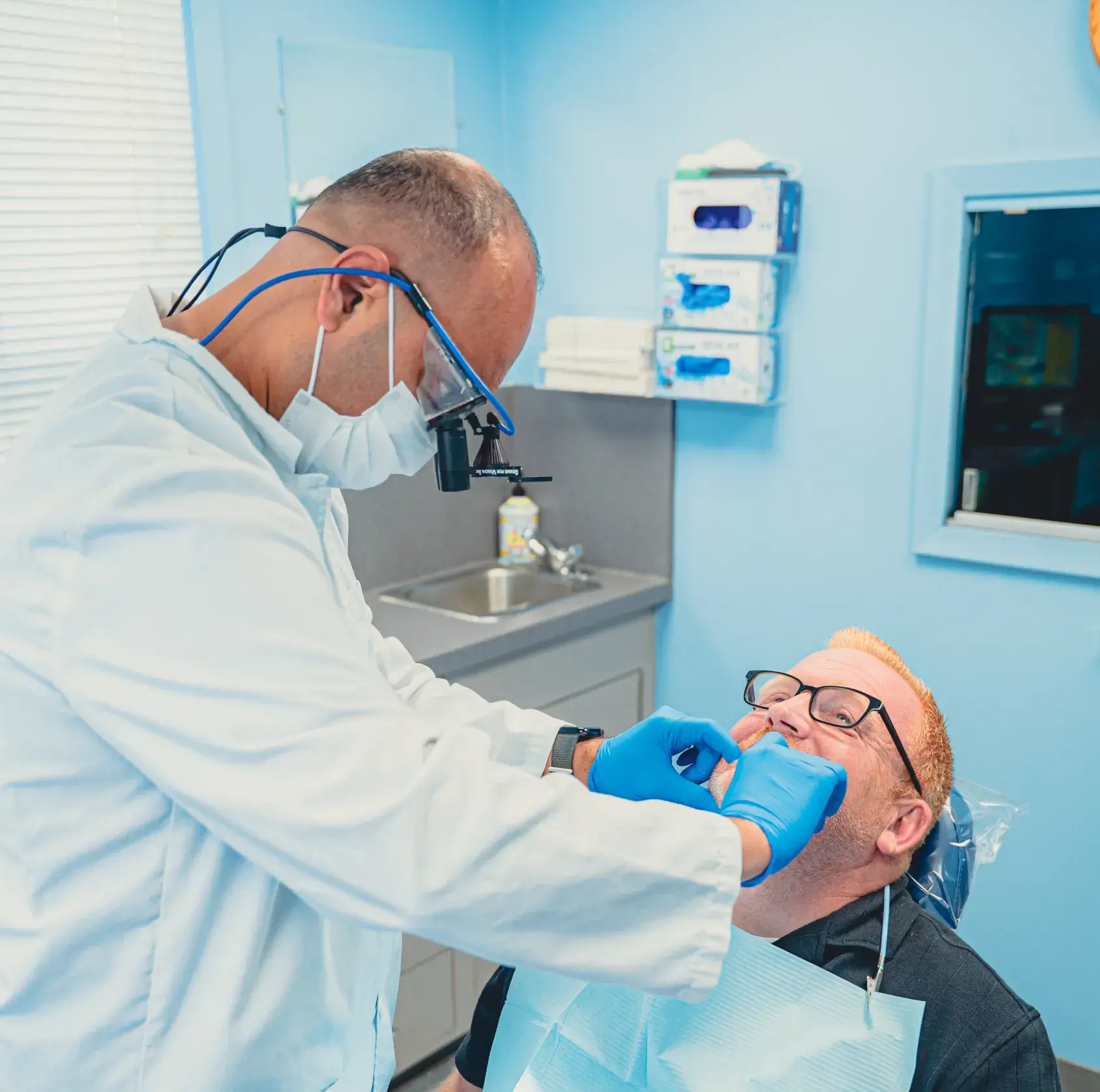
Our Emergency Dental Services
We provide a range of emergency services to address your urgent dental needs:
- Root Canals: To treat infected or inflamed tooth pulp, relieving pain and saving the tooth.
- Dental Crowns: Quickly restoring a damaged tooth's shape, size, and function.
- Tooth Extractions: Including wisdom teeth, performed with precision and care to alleviate pain and prevent further complications.
- Dental Implants: Offering a permanent solution for lost teeth, even in emergency situations.
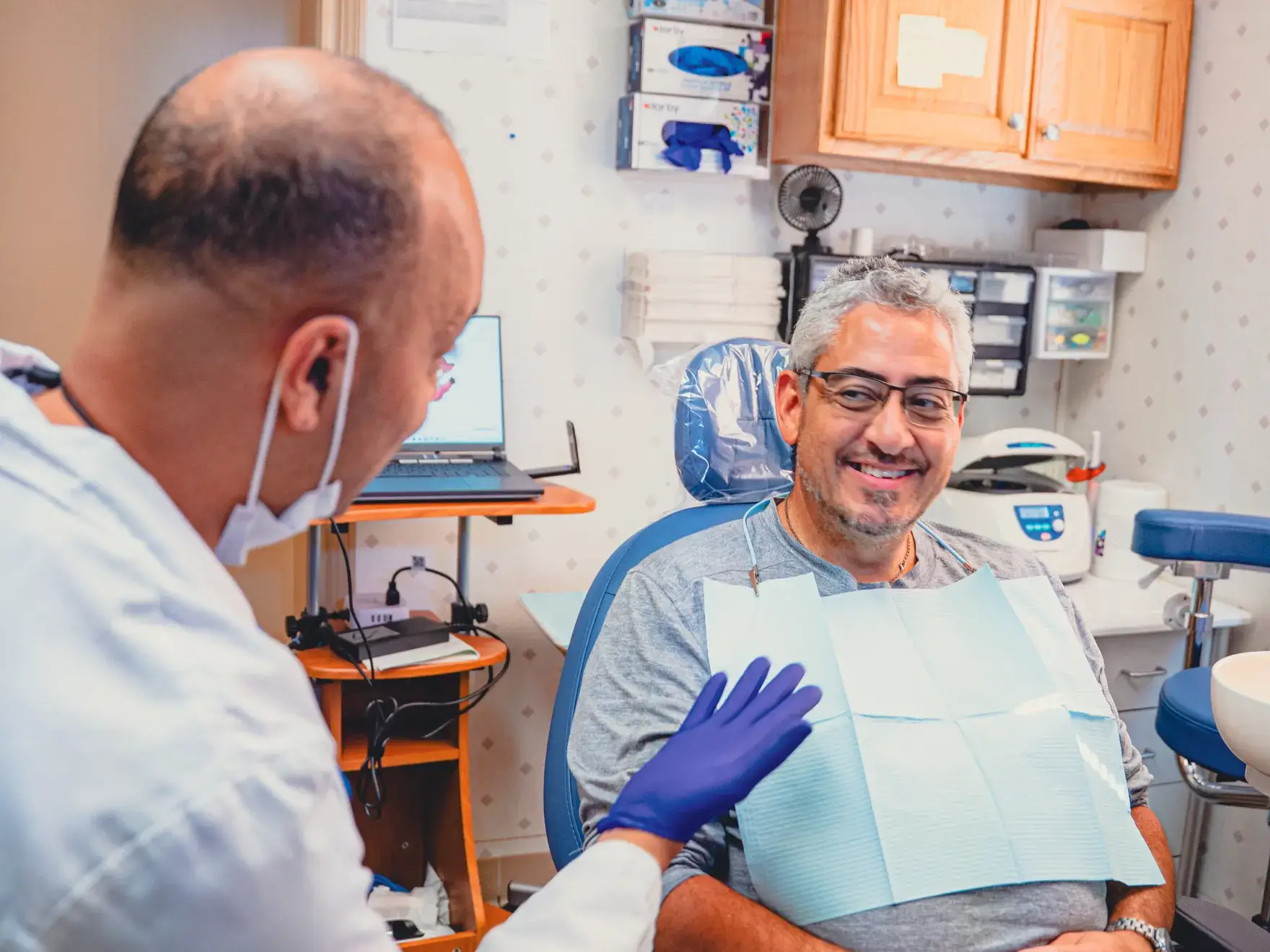
IV Sedation for Comfortable Emergency Care
Understanding the anxiety and discomfort associated with dental emergencies, we offer IV sedation. This ensures a calm, pain-free experience, allowing us to provide the best possible care without the stress or fear often associated with dental procedures.
Financial Flexibility for Emergency Dental Care
At Grace Dental Care, we believe financial concerns should never hinder your access to urgent dental care. We accept several in-network and out-of-network PPO insurance plans. For non-insured patients or additional costs, we offer credit card and CareCredit options, ensuring financial flexibility.
Preventing Dental Emergencies
While not all dental emergencies can be avoided, here are some tips to minimize the risk:
Regular Dental Checkups
Good Oral Hygiene
Protective Gear
Avoid Hard Foods
Personalized Service
Specialized Care
Enjoy Expert Specialty Dentistry from a Team that Truly Cares
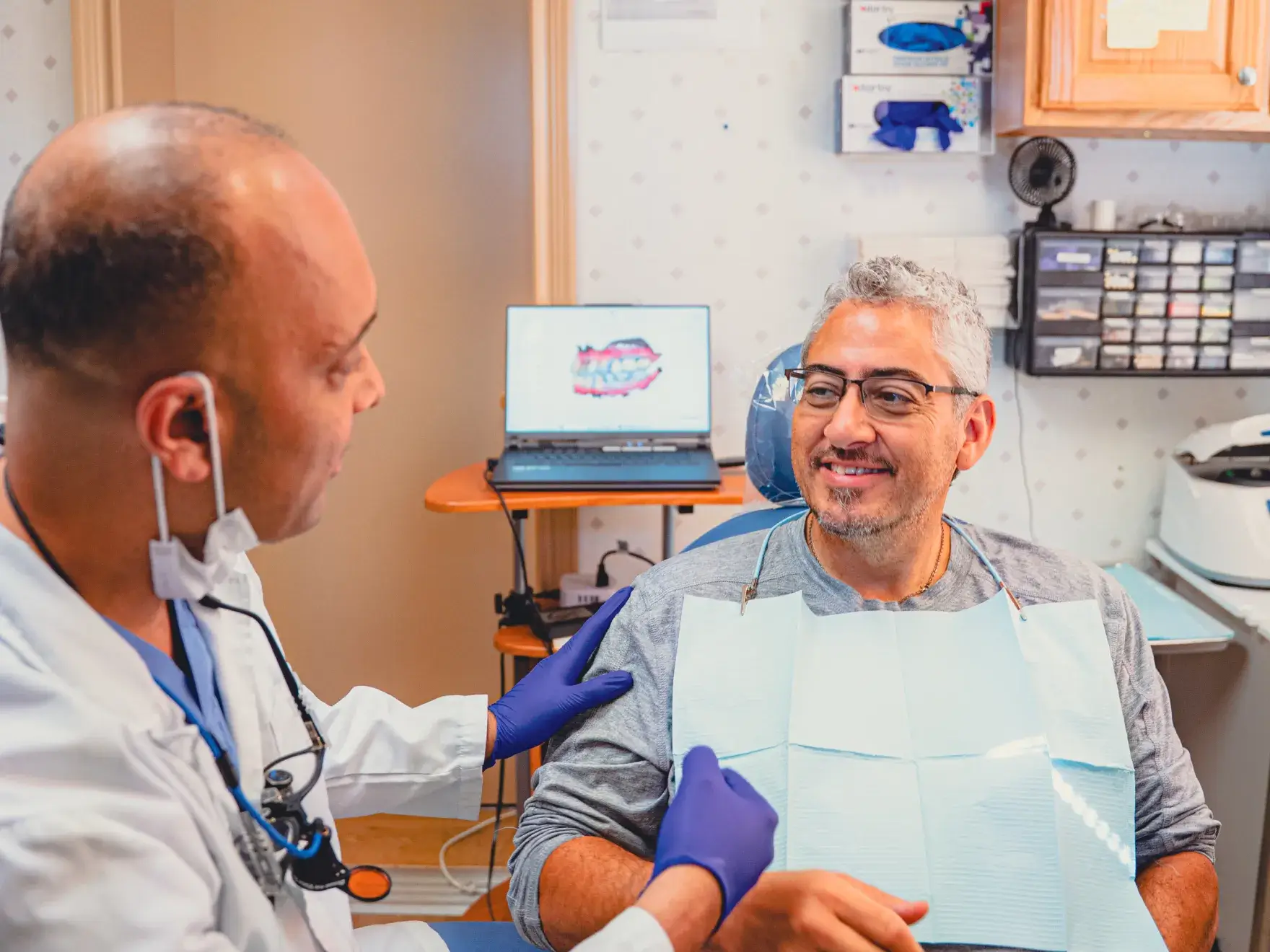
Personalized Care
Advanced Technology
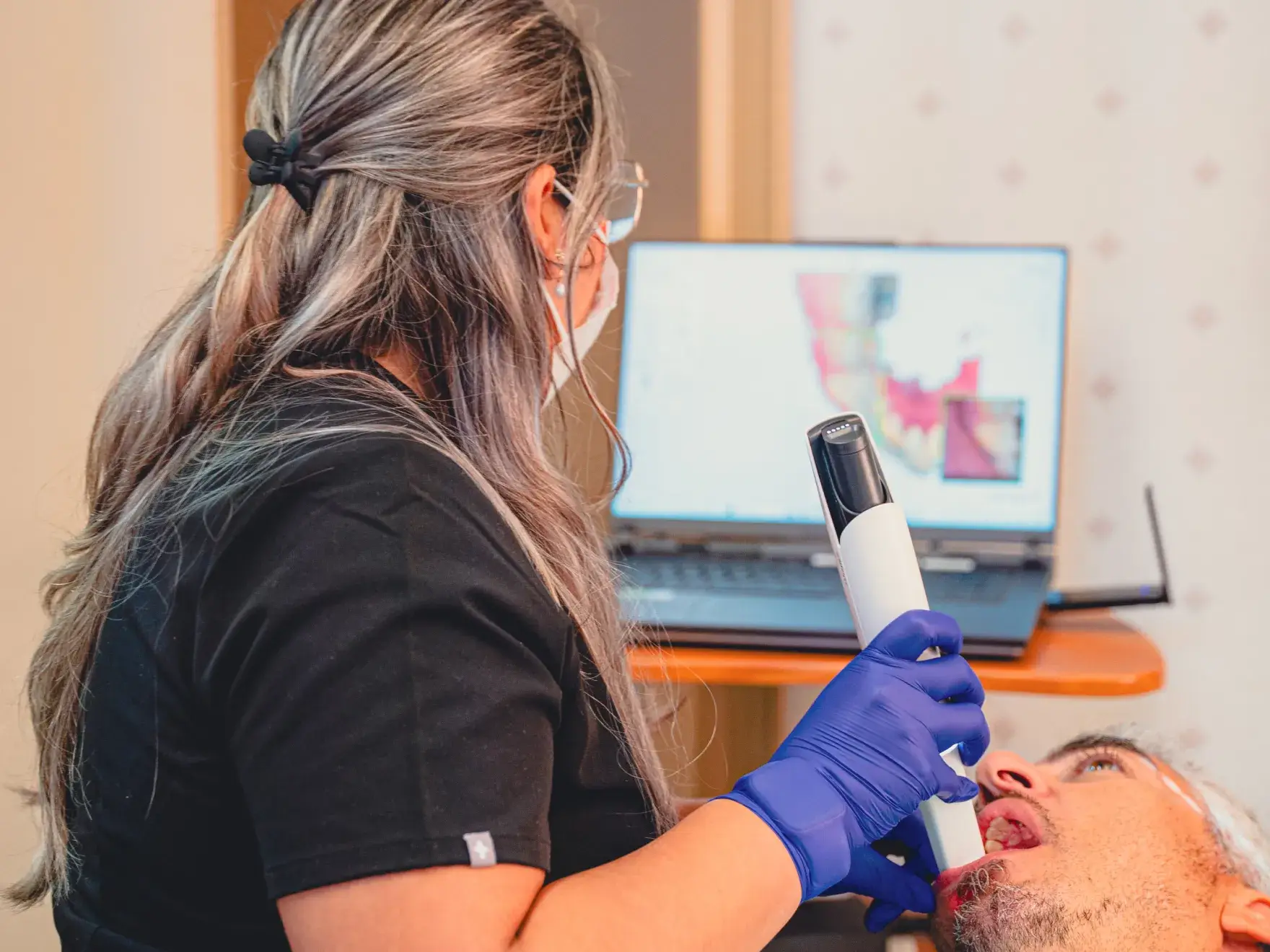
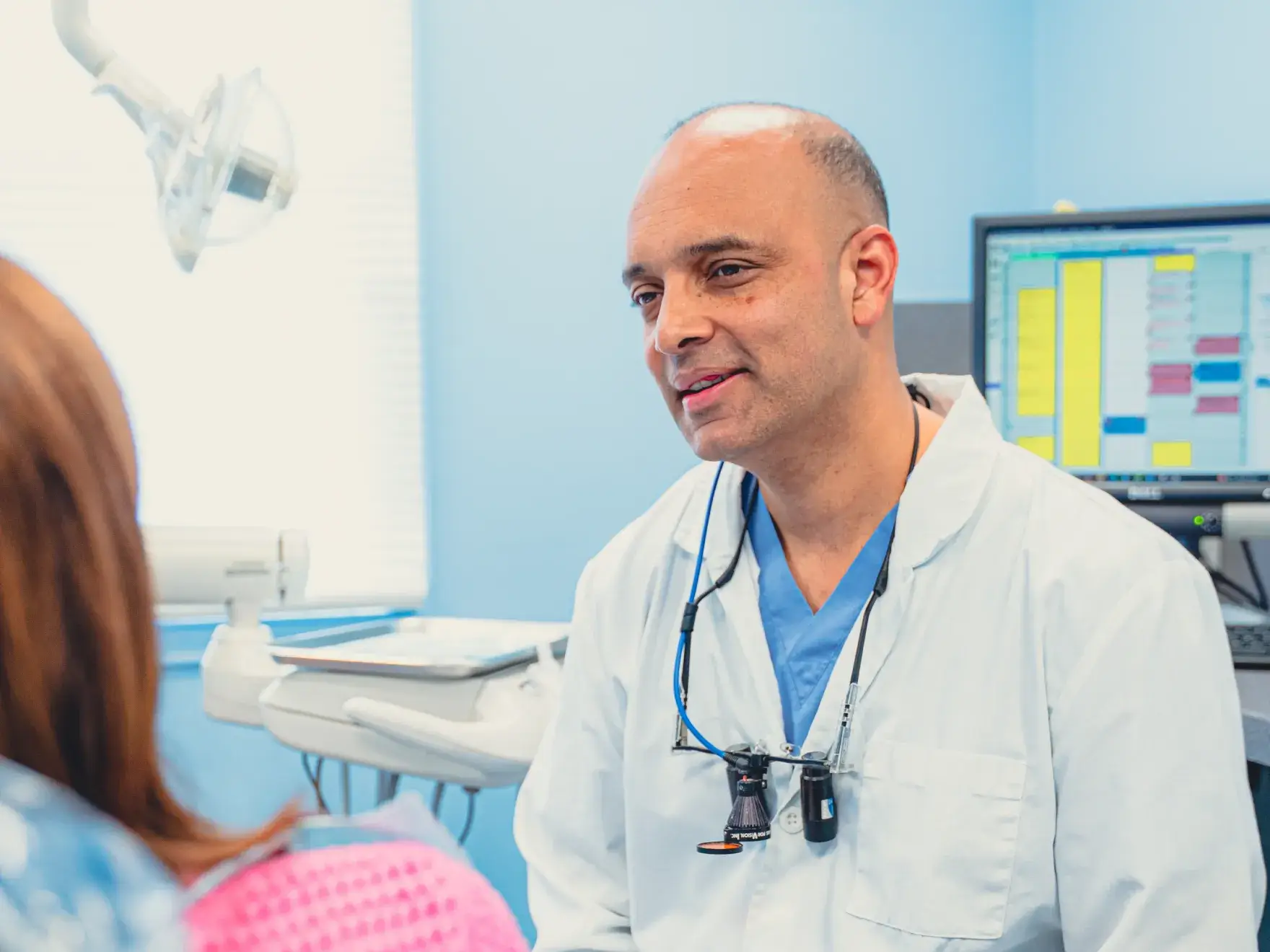
Flexible Financing
Frequently Asked Questions
What are my payment options for emergency dental care?
We're flexible financially, accepting several in-network and out-of-network PPO plans, along with credit card and CareCredit options, ensuring you can focus on your dental health free from worry about pain, anxiety, or finances.
How does Grace Dental Care handle dental emergencies?
At Grace Dental Care, we provide immediate care to relieve dental pain, including performing root canals, placing crowns, extracting teeth (including wisdom teeth), and placing implants. We understand the anxiety associated with dental emergencies and offer IV sedation for a comfortable experience.
Can a severe infection or abscess wait until my regular dentist appointment?
No, severe infections or abscesses need immediate treatment to prevent the spread of infection, which can be life-threatening. Symptoms can include fever, swollen gums, a bad taste in your mouth, and pain.
Are lost fillings or crowns considered emergencies?
Yes, lost fillings or crowns should be treated as emergencies as they can lead to further damage or infection. Keep the crown safe if it falls out, as it might be possible to reattach it. If possible, slip the crown back over the tooth and use over-the-counter dental cement, toothpaste, or denture adhesive to keep it in place until you can see a dentist.
What should I do in case of a broken, chipped, or fractured tooth?
Rinse your mouth with warm water immediately. If there's swelling, apply a cold compress to the outside of the mouth or cheek. Collect any broken tooth fragments and bring them with you to the dentist.
How can I manage a toothache before getting to the dentist?
For a toothache, rinse your mouth with warm water to clean it out. Gently use dental floss to remove any food caught between your teeth. Avoid applying aspirin directly to the tooth or gums, as this may burn the gum tissue. Over-the-counter pain relievers can temporarily alleviate pain, but it's important to see a dentist as soon as possible.
What should I do if I have a knocked-out tooth?
Time is critical in saving a knocked-out tooth. Handle the tooth by the crown (the part that is visible in the mouth), rinse it gently without scrubbing, and try to reinsert it in the socket. If that's not possible, keep the tooth moist in milk or a tooth preservation product and seek immediate dental care.
What constitutes a dental emergency?
A dental emergency includes any situation that requires immediate attention to relieve severe pain, stop ongoing tissue bleeding, or save a tooth. This can include severe toothaches, chipped or broken teeth, knocked-out teeth, partially dislodged teeth, lost fillings or crowns, abscesses, and bleeding or swollen gums.











